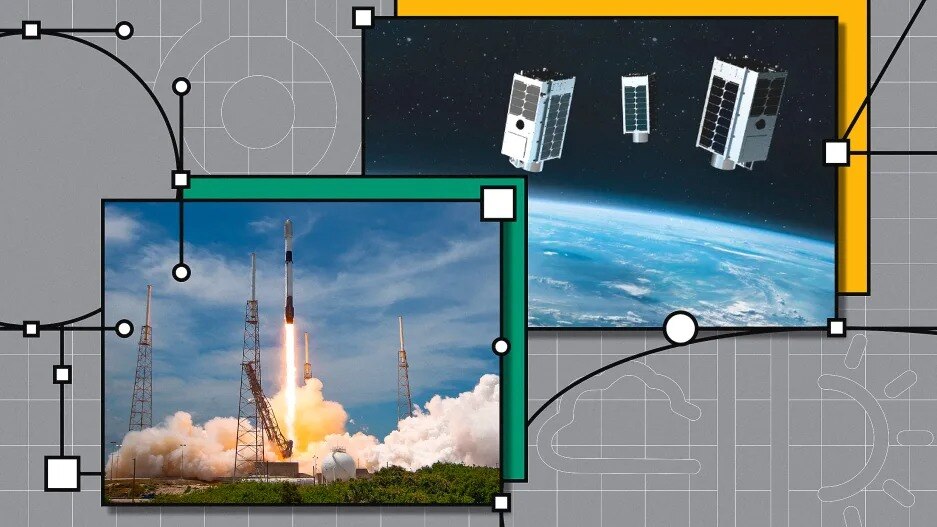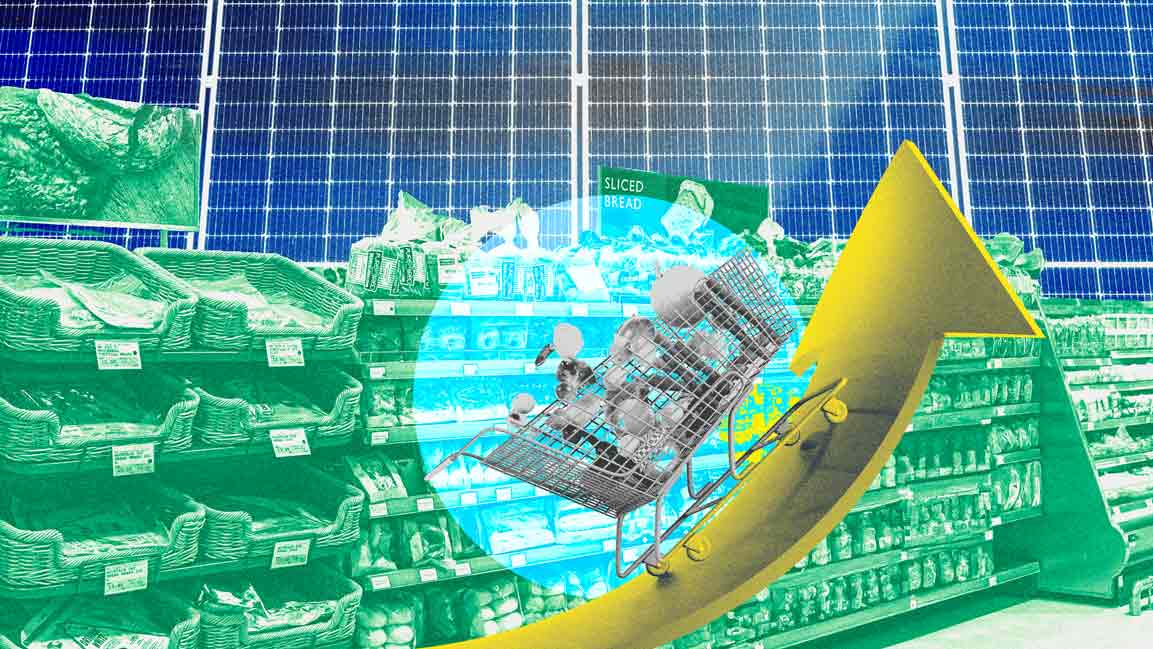- | 1:00 pm
Plugging methane leaks is one of the fastest ways to fight climate change. These satellites find the leaks
GHGSat’s Spectra methane detection satellites are a winner of Fast Company’s 2023 World Changing Ideas Awards.

GHGSat is one of the winners of Fast Company’s 2023 World Changing Ideas Awards. Explore the full list of projects we’re honoring for making the world more equitable, accessible, and sustainable.
Methane is a much more potent greenhouse gas than CO2: Over a 20-year period, it traps more than 80 times more heat in the atmosphere. And methane emissions are soaring. That’s why finding and stopping those emissions—like leaks from the oil and gas industry—is an especially effective way to fight climate change now.
Each day, a startup called GHGSat uses a fleet of satellites to help find those emissions. “About 50% of all methane emissions are fugitive, meaning that they occur at times and in places that we don’t expect,” says CEO Stephane Germain. “So you do need pervasive monitoring to find them. When you do find them, it turns out that a lot of them are from things that are readily fixable.” This fleet, called Spectra, is the winner of Fast Company’s World Changing Ideas Award in the climate category.
A decade ago, searching for methane leaks happened with a handheld tool and a laborious process of searching through every valve and all the other parts at a well. With millions of oil and gas wells in the U.S. alone—along with other sources of methane emissions, such as landfills—it wasn’t feasible to monitor everything.
GHGSat was the first company to develop technology that could detect methane at a large scale by using satellites. The tech looks for the “spectral fingerprint” of the gas; since each gas in the atmosphere absorbs light at specific wavelengths, it’s possible to identify methane. The company now has five commercial satellites in orbit (three of which launched in 2022), and plans to add six more later this year. Ultimately, “we want to get to the point where we’re monitoring every single facility in the world on just about a daily basis,” Germain says. GHGSat will also launch the world’s first commercial CO2 satellite this year.
Companies and governments can use the data to find pollution hot spots and make changes. In the Middle East, for example, after the tech identified a problem at a gas facility, emissions at that single site dropped by a staggering 750,000 metric tons of CO2-equivalent per year. (For fossil-fuel companies, fixing leaks can also help with the bottom line, since they’re saving gas that they could sell; most leaks can be fixed at no net cost or at a profit.) Globally, the startup thinks it has the potential to eventually help mitigate 10% of total emissions.







































